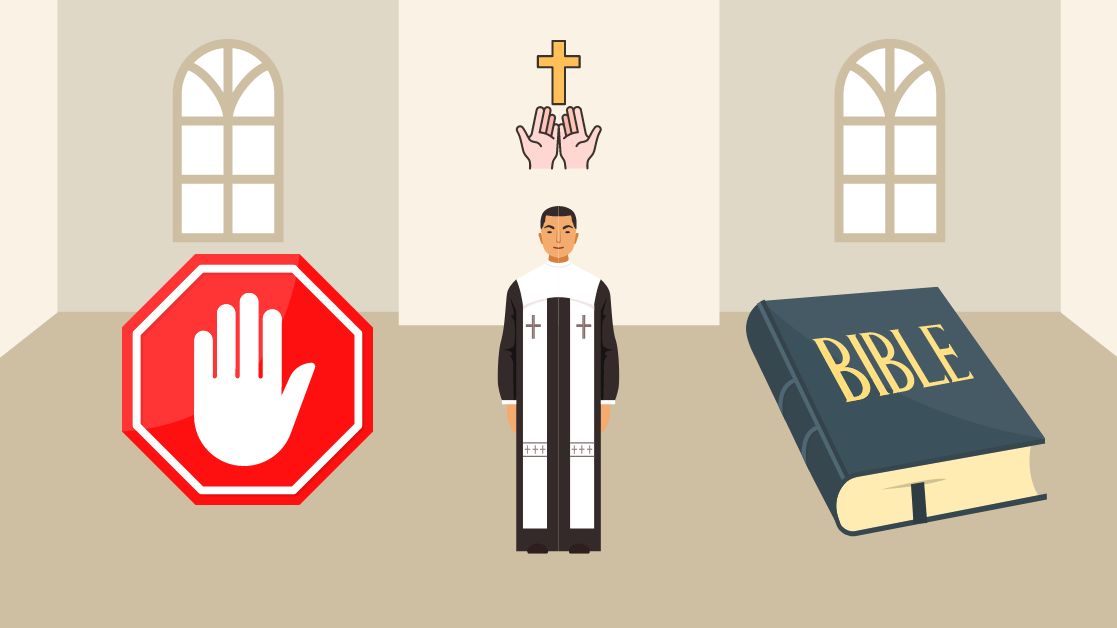The Catholic Church does not explicitly discourage Bible reading; instead, it promotes a guided and contextual approach to ensure accurate comprehension and interpretation of the sacred text.
The Catholic Church has often been accused of discouraging its members from reading the Bible independently. However, this perception requires a nuanced understanding to avoid misinterpretation.
This post will further discuss the claims that the Catholic Church discourages Bible reading.
Preventing Misinterpretations in Bible Reading
One of the primary reasons the Catholic Church encourages a guided approach to Bible reading is to prevent misinterpretations and promote a deeper understanding of the text.
The Bible, composed of various genres, contexts, and languages, can be challenging to decipher accurately. Individual interpretations can vary widely without proper guidance, potentially leading to theological misunderstandings and divisions.
The function of the Magisterium, the teaching authority vested in the Pope and the bishops, is crucial to the Catholic Church’s interpretation of the Bible. This organization is in charge of accurately interpreting and maintaining the teachings of the Bible.
The Church worries that unrestrained personal interpretation without this authority could result in theological fragmentation and distorting core doctrines.
We are reminded in Proverbs 3:5–6 to trust the Lord with all our hearts and also to not lean on our own understanding. Moreover, we should submit to him, and he will make our paths straight.
The Catholic Church’s position is intended to ensure harmony in teaching, not restrict individual spiritual development. The Church can protect itself from misunderstandings that could result in heresy or a departure from orthodox views by depending on the Magisterium.
Scriptures in Catholic Mass
When attending Mass, Catholics engage with a reading from the Old Testament, vocalize or melodiously render a Psalm, delve into a reading from the Epistles, and subsequently immerse themselves in a Gospel reading. This structured sequence is meticulously designed to center the Mass on Christ as depicted in the Gospels.
Catholics adhere to a comprehensive three-year rotation of Scripture readings, ensuring that attendees will have encountered almost every part of the Bible across this span. Furthermore, the responses and utterances within the Communion service derive primarily from Scripture.
Consequently, a practicing Catholic possesses a familiarity with and utilizes Scripture. However, their engagement predominantly revolves around meditation and worship (Psalms 119:48) rather than solely for acquiring personal information and instruction.
Addressing Biblical Illiteracy in Catholics
The concept of “biblical illiteracy” has garnered attention, especially among non-Catholics who are well-versed in the Bible’s content. This term refers to a lack of familiarity with the contents and teachings of the Bible, which can extend to even fundamental aspects of faith.
The Catholic Church recognizes the need to address biblical illiteracy and is taking steps to encourage a more comprehensive engagement with the Bible.
Many Catholic parishes and educational institutions emphasize Bible studies and reflection groups that foster a deeper understanding of Scripture. This effort aims to empower Catholics with the tools to explore the Bible’s teachings and relate them to their faith.
Spiritual Enrichment Through Bible Readings
Another rationale behind the guided approach to Bible reading is to cultivate a holistic spiritual experience. Catholicism is deeply sacramental, encompassing diverse forms of worship such as the Mass, Eucharist, and sacraments.
Incorporating Scripture into liturgical liturgy is one of the distinctive features of the Catholic faith. Bible readings are an integral part of the Mass, and the lectionary provides a structured schedule of readings encompassing a wide range of Biblical content.
This practice ensures that Catholics encounter various passages of the Bible in the context of worship, deepening their understanding and connection with Scripture.
Catholics may not be as skilled in citing specific Bible chapters and verses, yet they are familiar with and incorporate Scripture into their lives through a distinct approach.
For Catholics, Scripture serves as a subject for in-depth study and a medium for worship. As Psalms 119:7 affirms, it is a source of reverence and devotion.
Bottom Line
Contrary to misconceptions, the Catholic Church’s stance on Bible reading is rooted in a desire to ensure accurate interpretation, preserve tradition, and foster unity among believers.
The Catholic Church aims to elevate the spiritual journey of its adherents while guarding against misinterpretations that could undermine its foundational teachings.
Scripture is not merely a source of information but a conduit for spiritual growth, meditation, and devotion. It is a living text woven into the fabric of worship, guiding believers on a path of understanding and reverence.




